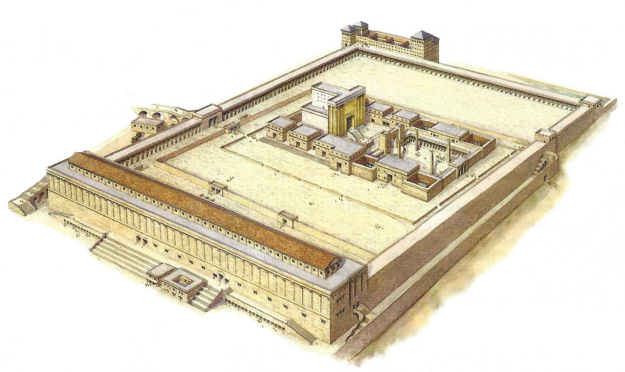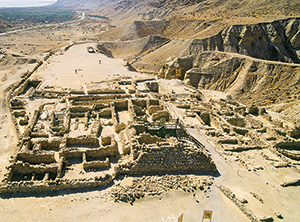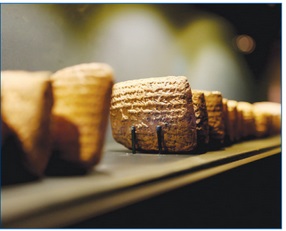Pesach and the Second Temple
 What was the first Yom Tov observed in the Second Beis Hamikdash after it was built? And what was the last one observed there right before it was destroyed by the Romans? Answer: Pesach.
What was the first Yom Tov observed in the Second Beis Hamikdash after it was built? And what was the last one observed there right before it was destroyed by the Romans? Answer: Pesach.
The Book of Ezra (6:16-20) relates how the construction of the Second Beis Hamikdash was completed in Adar 515 BCE and immediately followed by the celebration of Pesach. Kohanim, Leviim and those Judeans who had come up from the exile in Babylonia joyously marked the rededication of the Beis Hamikdash with numerous sacrifices. The priestly and Levitical rotations were reinstated, and the worship was conducted in accordance with the Torah’s commands. The account of Ezra stresses the purification rituals, as well as the fact that some of the Jews who remained in Eretz Yisrael after the deportations of 597 and 586 BCE joined in observing Pesach. As expected, Chag Hamatzos was observed for seven days.
Click here to rest the rest of this article in Ami Magazine: Pesach and the Second Beis Hamikdash.
A Short History of the Dead Sea Scrolls
 I want to say here and now how grateful I am to the original team of Dead Sea Scrolls scholars who failed to publish the bulk of the scrolls for nearly 40 years and refused to let other scholars see them in the meantime. But for them, I would never have had the exciting life I have led as one of the first generation of scholars to study the full corpus of the scrolls after their release.
I want to say here and now how grateful I am to the original team of Dead Sea Scrolls scholars who failed to publish the bulk of the scrolls for nearly 40 years and refused to let other scholars see them in the meantime. But for them, I would never have had the exciting life I have led as one of the first generation of scholars to study the full corpus of the scrolls after their release.
Click here to read the rest of this article, “A Short History of the Dead Sea Scrolls and What They Tell Us,” Biblical Archaeology Review, May/June 2015.
The Jews of Babylon
 Jerusalem exhibit documents exilic community after the First Temple
Jerusalem exhibit documents exilic community after the First Temple
Those of us fascinated by the ability of archaeology to bring to life ancient Jewish history and to remind of us of our historical continuity are now presented, for the first time, with direct evidence of the Jewish community established in Babylonia right before and after the destruction of the First Temple. While these finds were partly known to scholars for some years now, the first public presentation of these documents took place on Feb. 1 with the opening at the Bible Lands Museum in Jerusalem of a full-scale exhibit and a scholarly conference devoted to these important texts.
Click here to read the rest of the article in the Jewish Tribune.
